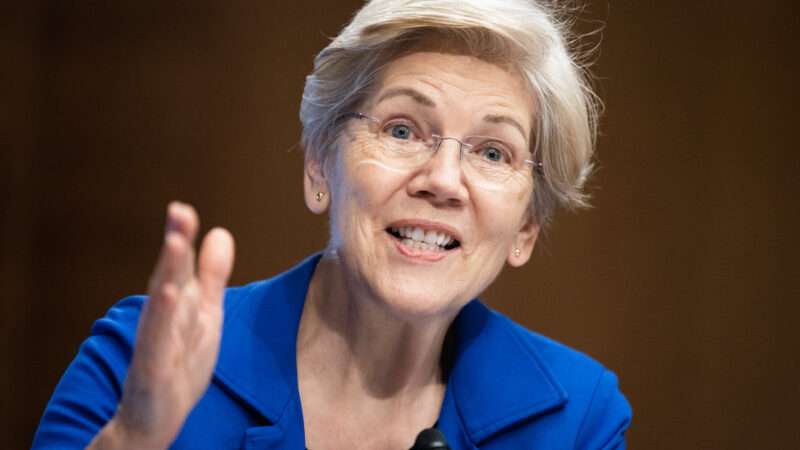
As something of a fast-food aficionado, I've been amused by the raging and inconsistent arguments from progressives about the fast-food industry. For years, these professional scolds have depicted America as a Fast Food Nation, with cheap burger joints epitomizing our nation's consumerism, tackiness and fast pace. Why can't we all enjoy two-hour gourmet lunches at the café like they do in Europe?
In his review of a 2001 book by that name, a New York Times writer conceded that fast food is not "solely responsible for every social problem now haunting the United States," but he complained that it "has been a catalyst and a symptom of larger economic trends." The argument is hard to follow, but it has something to do with big corporations, low wages, Big Agriculture and some blah, blah, blah about social stratification.
To make matters worse, we're even exporting this culture. I recently watched a delightful video of British kids eating a Popeye's fried chicken sandwich for the first time. They loved it, which is the latest evidence of American cultural imperialism. I prefer the one from Raising Cane's because the slice of lettuce counters the grease, but to each their own. In the suburb near me, one can choose from dozens of sandwich shops in a small area.
That brings me to the latest leftist obsession: fast-food acquisitions. In a tweet last week, U.S. Sen. Elizabeth Warren (D–Mass.) harrumphed: "We don't need another private equity deal that could lead to higher food prices for consumers. The @FTC is right to investigate whether the purchase of @SUBWAY by the same firm that owns @jimmyjohns and @McAlistersDeli creates a sandwich shop monopoly."
This is ludicrous for various reasons. I appreciate the value of a nicely assembled sandwich—and as a free-market advocate understand the complexities of running any type of business—but slapping lunch meats and condiments on bread is not some high-barrier-to-entry endeavor. Should a federal government that is nearly $ 34 trillion in debt and can't manage basic operations be micromanaging fast-food business purchases?
A monopoly is defined as "the exclusive possession or control of the supply of or trade in a commodity or service." To apply it to sandwich shops is incomprehensible. Subway is large, but is dwarfed by the number of independent delis. Increasingly, the federal government is expanding that monopoly definition to include any business that has a lot of market power.
Many politicians and regulators—especially in the Biden administration—seem economically illiterate, but do they have to be actually illiterate, too?
Why are lefties so upset at the potential of rising fast-food prices when they want people to eat less of it? These ideologues, of course, specifically want to raise prices of nicotine products, fossil fuels, and other disliked substances to reduce reliance on them. For instance, a 2018 study from the federal Centers for Disease Control complained that nearly 37 percent of Americans eat fast food every day and that such habits are associated with obesity.
Regarding fast food, progressives have zeroed in on the fast-food industry to improve the living conditions of low-wage workers. As I explained on these pages last month, California Democrats passed a law creating a European-style sectoral-bargaining commission to set wages and working conditions on national-franchise fast-food restaurants.
They ultimately agreed to a deal (to avoid a statewide referendum) that limits the commission's power, but boosts wages to $20 an hour. That will harm the industry and raise prices, which could reduce salty french fry consumption, but that isn't their goal. It's just odd to pin the financial future of lower-income workers on an industry they believe to have such a maleficent influence. We don't see Gov. Gavin Newsom trying to help workers pursue careers in the oil and gas industry.
As an aside, President Joe Biden recently slammed businesses for high prices: "Let me be clear to any corporation that hasn't brought their prices back down even as inflation has come down: It's time to stop the price gouging." Never mind that his own administration's policies, and the policies of other Democratic politicians, are driving up the wages that are resulting in soaring restaurant prices. It's not gouging, but government policy.
It's pointless to look for consistency. Progressives dislike the private sector and are incapable of blaming inflationary government policies given they always want more government spending and meddling. There always has to be a bad guy, and fast-food restaurants fit that bill for any convenient reason relating to nutrition, wages, mergers, rising prices, or over-sized portions. Tech firms get this treatment, too, as the Federal Trade Commission is targeting Amazon for offering customers really good deals.
Next time you get sticker shock at a sandwich joint (and I always recommend Jimmy John's Spicy East Coast Italian), remember that government policies are the reason. The FTC's new fight against sandwich "monopolies" is just the latest effort at deflection.
This column was first published in The Orange County Register.
The post What Elizabeth Warren's Fear of a 'Sandwich Shop Monopoly' Reveals About Democrats' Priorities appeared first on Reason.com.







